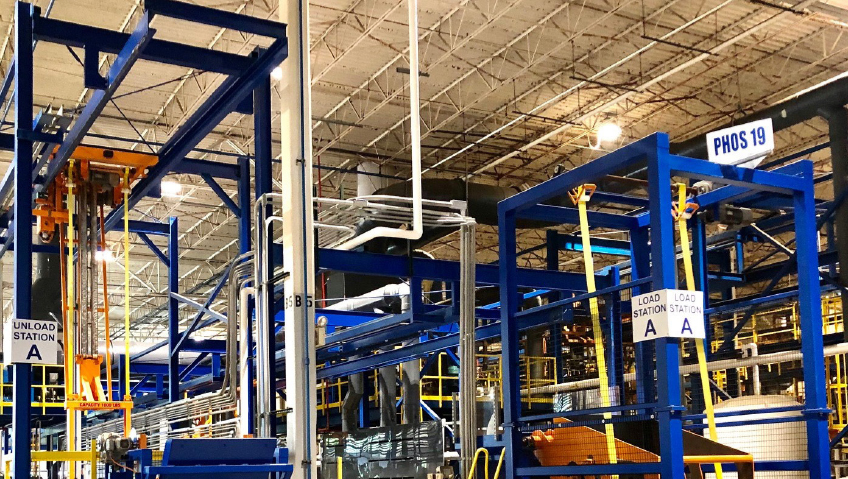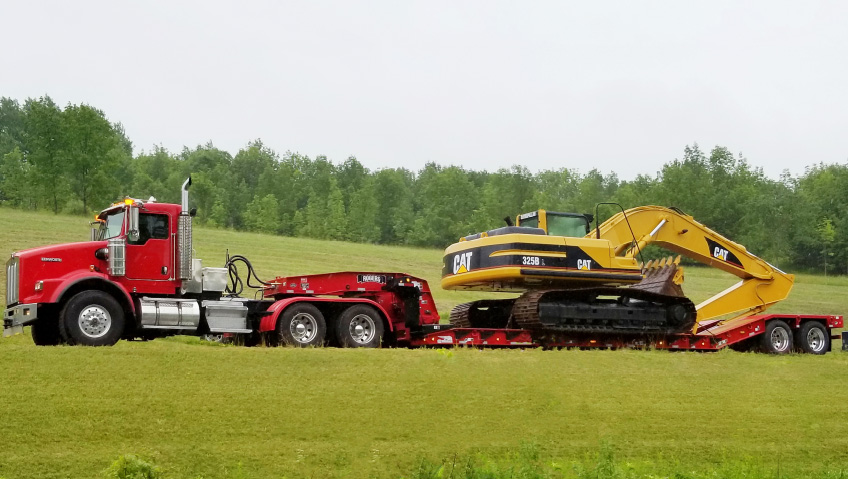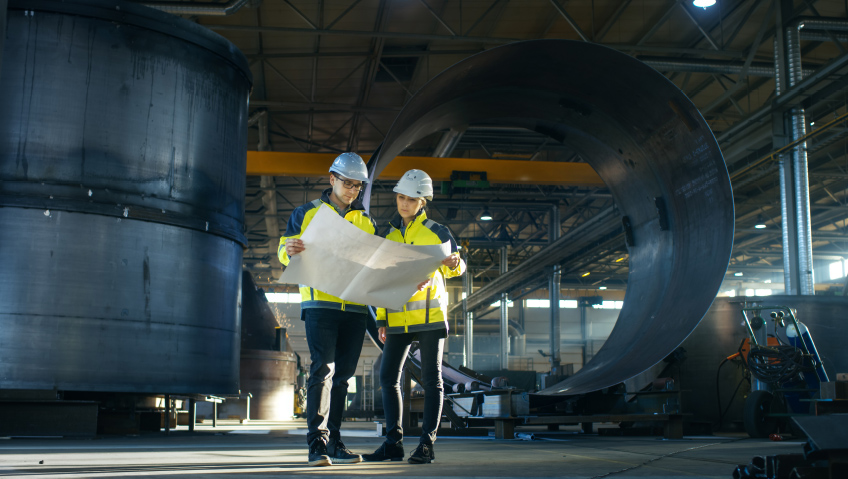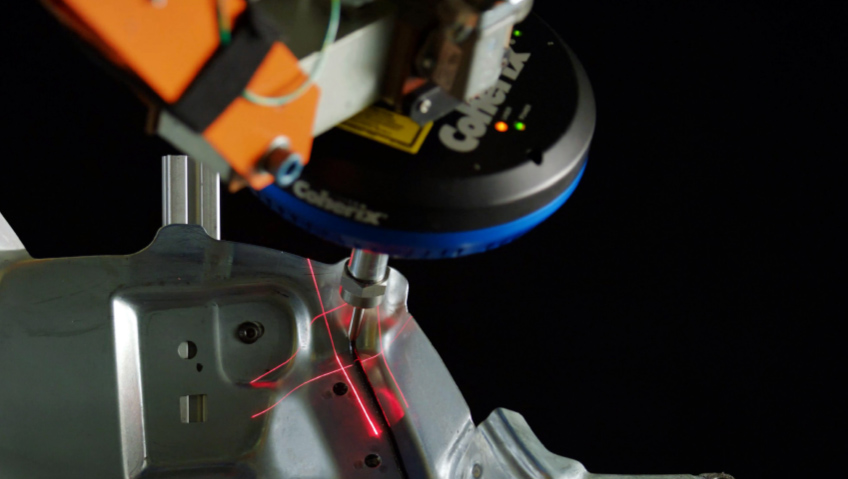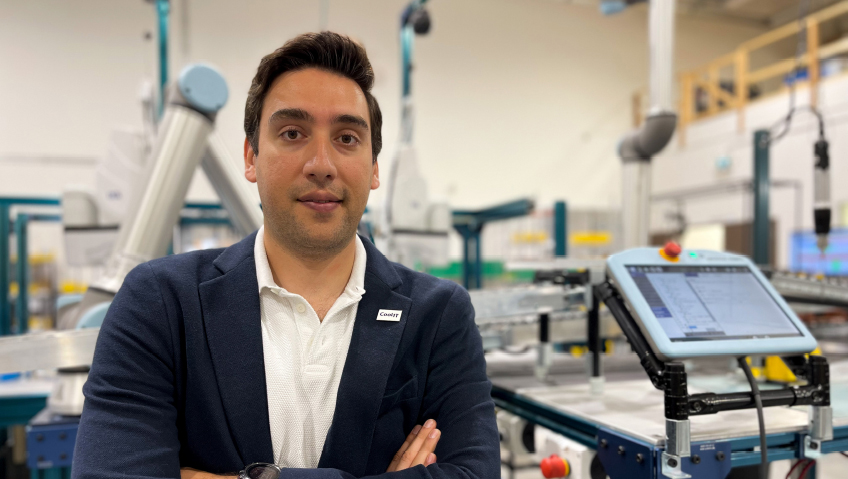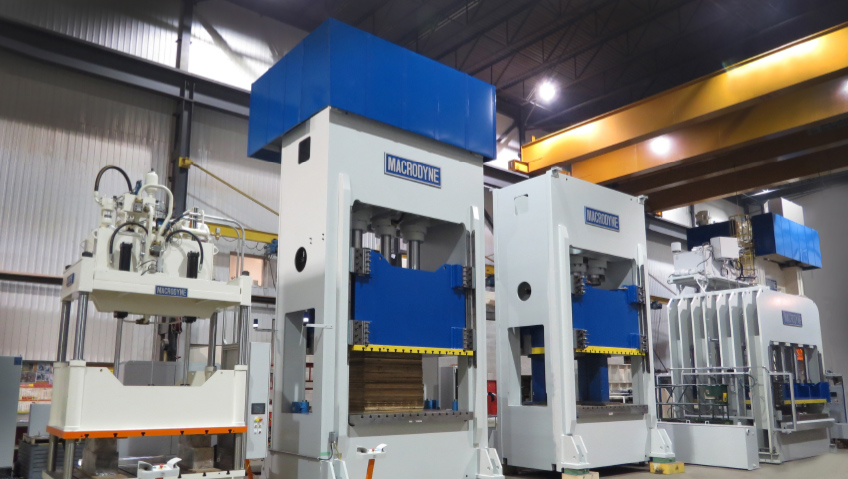Vision. Innovation. Commitment. Resourcefulness. Problem-solving. Dedication. Excellent customer service. These all describe the largest metal finishing firm in the Southeast U.S. Roy Metal Finishing (RMF) has consistently finished in the top fifty finishing shops in North America as listed by Products Finishing trade magazine and has been named the top shop in the U.S.
RMF provides a variety of electroplating, coating, and related services and holds a number of certifications, such as the IATF 16949 Automotive Quality Standard, to comply with the requirements of its customers.
Prior to launching the company, Founder Donald Roy worked with a company that did metal finishing on parts for textile equipment manufacturers. He saw the need for a good electroplater, mainly for the textile industry in the Southeast. There was an opportunity for someone to do it better, and Donald Roy was convinced that he was that someone.
In 1961, he moved south to Greenville, South Carolina and started his own business. It was very much a family business in the early days, as the workforce consisted of Donald and his wife Cecile.
Donald instilled a company culture that focused on a commitment to customers, quality, and the environment. His early analysis found that to serve the textile industry, a company would need to offer exceptional customer service, quick turnaround time and high quality. Successive leaders in the company continued to incorporate these values into the company’s method of doing business.
Roy Metal Finishing offered quality metal finishing to textile producers along Interstate I-85 and Interstate I-65. The strategic location was part of the vision that has served RMF throughout its history, and that vision was critical in the 1990s. Textile producers closed their mills in the Southeast U.S. and moved to Mexico and other locations overseas. Empty textile mills told the story of these decisions to move.
However, the early vision of Donald Roy to set up near I-85 and I-65 was significant, since the location, more than luck, brought new opportunities for continued success. In 1994, automotive manufacturer BMW moved to within 16 miles of RMF. Previously, most of the automobile manufactures were located in the Northeast: Michigan, Ohio, and the Rust Belt.
BMW was the beginning of a cluster of automotive manufactures to settle in the Southeast with RMF conveniently at the center. Those manufacturers include Mercedes, Toyota, Hyundai, Kia, Honda, Nissan, Volkswagen, and over four hundred Tier I and Tier II suppliers that have settled in the area that RMF refers to as its ‘circle of influence’.
The growth of the automotive cluster over the last thirty years has, as President and Chief Executive Officer Dean Davidson states, “allowed RMF to grow from a small, family-owned job shop to one of the largest independent metal finishing companies in the Southeast [USA]. This growth required RMF to develop the engineering expertise along with a world-class management system that can meet the expectations and requirements of these automotive [original equipment manufacturers].”
“We work with a lot of international companies,” he says, noting that RMF has worked with most of the automotive companies in North America. “We work primarily through their Tier 1 or Tier 2 suppliers. We work with everything from suspensions and brake components to exterior components such as grills and brackets and tubes that are found under the hood.”
There is more to remaining the award-winning company that is RMF than just being in the right location. The company uses innovation, efficiency, and process technology to be recognized by an industry reviewer for excellence in surface finishing for five consecutive years. It was also the November 2020 recipient of a Renewable Water Resources (ReWa) compliance award.
“Ever since Mr. Roy started the company, the environment has been important,” Davidson says. “Electroplating can be rough, especially when it comes to wastewater and hazardous waste. We committed a large portion of our resources to having world-class wastewater treatment facilities inside our production facilities and have established high-level relationships with our state and local agencies. Our record-keeping and compliance with federal and state regulations is important to us and is part of our sustainability initiative. Our commitment is to not have an impact on the environment.”
Davidson explains that the success that the company has experienced is a result of measures that are part of its heritage and ideology. “We have consistently committed at least fifteen percent of our annual revenue to reinvesting in our technology and process innovations. Our goal is to make each new line or process better than the last one through our ‘lessons learned’ process. We provide corrosion-resistant metal surface finishes that are functional coatings with a high aesthetic quality such as zinc and zinc alloy electroplating, electrodeposition and powder coat painting as well as zinc phosphating that meet the stringent requirements of the automotive, agriculture, and industrial markets.”
“We put our customers first. Every order is important. In order to provide the level of service that our customers expect, we developed a world-class management system that is certified to the IATF 16949 automotive standard. We focus on standardization and visual management to assure repeatability,” Davidson says.
“We offer our customer the latest and greatest, and a lot of that has come along with mistake-proofing and trying to build quality into our processes versus trying to inspect quality into the parts after they’ve been processed,” he explains. RMF aims to build that quality into its processes so that they are stable, consistent, reliable, predictable, and very highly automated.
Quality is an important value here. The major turning point in the company’s commitment to quality was the shift from textiles to the automotive industry which is demanding, with high quality standards and very discriminating customers.
Davidson elaborates on the impact of the evolving quality philosophy. “That required us (RMF) to look at our whole management system and our organizational structure. How we ran the business to be more systematic and be more deliberate and have a different level of discipline on the shop floor and how we do business. Some people might describe that as a transition from a ‘mom and pop shop” to a big company, but it was an evolution for us, and the automotive industry brought about that evolution along. We were better prepared than any of our competitors to meet the requirements of the automotive industry,” he explains.
“We solve problems for our customers by taking on projects that others could not figure out. Providing solutions along with exceptional customer service, quick turnaround, and high quality has helped RMF establish a favorable reputation in the metal finishing industry.” Today, the company leaders have expanded on those principles that Donald Roy believed in when he started the company and, in so doing, have helped keep it a viable entity.
These leaders saw that there were other needs that customers had that were not metal finishing in nature. Fifteen to twenty years ago, RMF put in place a transportation service to pick up the parts that the company needed to have finished. Later, it moved into other value-added services which Davidson says “makes it convenient for them [the customer] to do business with us.”
Those other value-added services have grown to include warehousing, relabeling, repacking, and direct shipping finished product to the end customer (OEM), which saves the immediate customer (the Tier I and II suppliers) time and logistics expense.
Davidson explains that this required RMF to “have systems within your management system so that you are doing those things correctly. Quality again is of utmost importance. We had to build that into our management systems as a complement to what we do as our core competencies.”
The company’s leaders recognized that new technologies and value-added services brought with them the need for expansion. Over several years, a thirty-acre parcel of land was acquired to build a corporate campus that, when completed, will have 500,000 square feet of space under one roof and accommodate three hundred employees, allowing RMF to consolidate the work now being performed in three facilities into its one space.
The company recognized its remarkable achievement of sixty years in business in 2021 with lunch and gift bags for employees, and downtime was arranged so that they could get together. The management team attended each of these sessions for every shift in each production facility. Because of the pandemic, things were somewhat low-key. A bigger event is planned for next year to include a focus on family and employee appreciation
“Over sixty years, we have had difficult times and challenges. We’ve also had a lot of reasons to celebrate over the last sixty years. But when the dust settles, we say ‘We win with our people,’” shares Davidson. “It’s our associates who show up to work every day to help us meet our customers’ needs; that is really what makes Roy Metal Finishing special and possibly differentiates us from some of our competitors. We have a saying: ‘None of us is as good as all of us!’”
Given the company’s principles, policies, framework of innovation, and caring for customers and employees, it is no wonder that RMF is a leader in the metal finishing industry.

